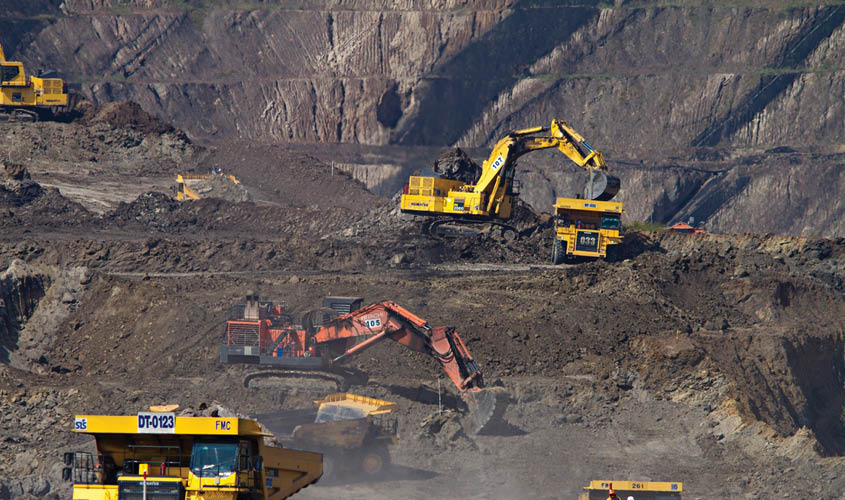Despite having one of the largest reserves in the world, India imported 235 million tonnes of coal in 2018-19. This gap can be filled by foreign investors.
NEW DELHI: Rising “green activism” has led to disinclination among investors to invest in coal mining and it is unlikely that the country’s move to open 100% foreign direct investment (FDI) will be successful in attracting investors in the current scenario, coal experts have said.
According to coal experts, opening up of the mining sector for private players by introducing 100% FDI is indeed a first good step, but many more steps are needed to attract investors. Despite having among the largest reserves in the world, India imported 235 million tonnes (MT) of coal in 2018-19. This gap can be filled by bringing in foreign investors.
Abhijeet Banerjee, a scientist at the Central Institute of Mining and Fuel Research (CIMFR), told The Sunday Guardian: “From Chhattisgarh’s Mand Raigarh coalfields that hold 3.675 billion tonnes of coal, to Meghalaya, the green protest and a confused green policy has led to the failure of the coal mining policy. The negative environment is such that till now, no investor has shown any interest in putting in money in coal mining.”
“We need to understand that coal is a source of energy and it lights up houses and factories and for that mining is necessary. If we don’t exploit our coal fields, they will go waste after certain years and we will end up spending money on imports. So being conscious about climate change is good for the health of the country, but for the economic health of the country, the government in place must clearly make a policy regarding their environment commitment,” Banerjee said.
“The investor needs surety that the money they are going to put into a business will not go waste. Look what happened in Chhattisgarh, coal mining was shut for more than 30 days due to the green protest. The protesters had halted production at South Eastern Coalfields Limited (SECL)—the second highest-producing subsidiary of public sector giant Coal India Limited (CIL)—as well as at previous mine owners Jindal Steel and Power Limited (JSPL). This kind of situation discourages investors,” Banerjee, who was also associated with the CIL, said.
Terming the 100% FDI move in coal a delayed step, Gautam Singh, a former scientist of CIL, said: “The 100% FDI in the mining sector is a delayed decision, but even now, the government should ensure a single-window clearance and speedy approvals of environment clearances, mining leases and land acquisition. If the government fails in ensuring these steps, the decision of opening up to FDI will not benefit the sector.”
“The country’s demand of coal is still high. The supply and production gap is being filled by imported coal and that is hurting the economy. Imports of coal also had been made at a cost higher than the prices of domestic coal. Also, the insufficient supply of coal has led to lower production in power plants against their installed capacity. In my view, FDI would enable competition in the coal sector which until now had been under the monopoly of CIL, a public sector company,” Singh said.
In 2018-19, India imported 235 million tonnes of coal. It also spent about $8 billion on importing 125 million tonnes of coal for non-coastal thermal plants.
The policy reform by the government now allows 100% FDI under the automatic route for the sale of coal and for coal mining activities, including associated processing infrastructure, subject to provisions of the Coal Mines (Special Provisions) Act, 2015 and the Mines and Minerals (Development and Regulation) Act, 1957, amended over time.
Earlier, 100% FDI via the automatic route was allowed in coal and lignite mining for captive consumption by power, steel and cement units only. Also, 100% FDI was allowed via the automatic route for the setting up of coal washeries. However, firms could sell washed coal only to those units that supply raw coal for processing and not in the open market.

